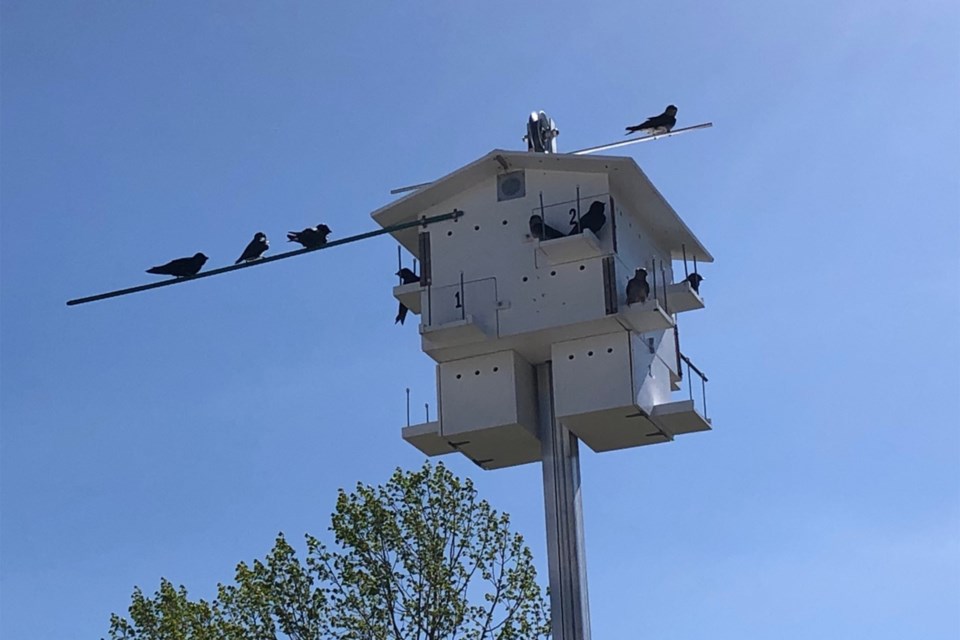CARSTAIRS - Trevor and Barbara Marshall have been providing homes for dozens and dozens of purple martin birds on their Carstairs property every year for many years, helping protect and promote the endangered animals.
And now they are encouraging other people in the district to get involved in supporting the beautiful avian visitors.
Purple martins are native songbirds of the swallow family. Typically 7.5 inches in length and weighing about two ounces, the birds are loved for their chattering song, gracefulness on the wing, and insect-eating feeding pattern.
The birds make an amazing annual 7,000 mile migration from Brazil to parts of western Canada for nesting in the spring and summer before heading back south in the fall.
In his backyard, Trevor has built and installed three multi-compartment birdhouses on stands that can be lowered and raised with a winch as needed.
“We stared about 18 years ago and it took 10 years to get the martins to come here and nest in the colony,” said Trevor. “It all started with two pair. Last year we fledged 106 babies.”
Part of looking after the birds is routinely checking up on their nesting progress, he said.
“Every five days we do nest checks,” he said. “We lower the boxes and count the eggs. And we check the babies to make sure there is no lice.
“Sometimes when we do the nest checks they are so tame they won’t even leave the box. You put your hand in to count how many eggs there are and they won’t even leave the box.”
Barbara said, “Even if she is sitting on eggs, she won’t move.”
Feeding the animals is also part of the job, he said.
“If the weather turns bad, like rain or snow, then we have to supplemental feed. We use crickets, scrambled eggs, and mealworms,” he said, noting they also provide crushed egg shells for the birds.
The birds are great at keeping the bugs down, he said.
“We have no mosquito problems,” he said. “Two per cent of their diet is mosquitos. They just gobble them up.”
The birds will also feed on dragonflies, moths, beetles, wasps and other flying insects.
Teaching other people about purple martins is something the Marshalls enjoy, he said.
“We are registered with the worldwide purple martin association and we are also registered with the Canadian Wildlife Federation,” he said. “What we are doing here is trying to educate people.”
The Marshalls keep detailed records of all the nesting pairs and offspring, sharing the information with other purple martin enthusiasts around the country and world.
“We upload the information online every year and it’s all tracked,” he said.
Anyone in the area interested in staring a purple martin colony of their own can contact the Marshalls at 403-620-6375 for information and encouragement.
Purple Martin Conservation Association also has lots of information at purplemartin.org.



